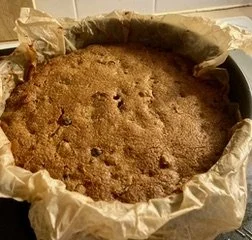Out of the Frying Pan...
Photo © Rob Jones
Falmouth based chef turned fisherman, Sam Jones, tells of his fears for the future of the small boats, serving local restaurants in Cornwall, battling in the face of foreign factory ships and red tape.
He spoke to Rob Jones.
‘Coverack faces due east. So, if there's an easterly wind, it's no good. A northerly wind tends to kill the fishing. But anything westerly to the South is good for us. The South westerly winds are great because they tend to help the fish come in a bit more.’
Sam Jones’s words have the comfort of a shipping forecast. I’m sitting in his cozy flat in Falmouth, in a huddle of buildings with their backs to the westerlies. He’s been up since 4am and has spent the whole day at sea.
‘When you've got a good few hooks down and they fill up with fish and you can feel it, it just brings you joy. It’s just that instant gratification.’
His infectious enthusiasm clearly runs deep, but being a fisherman wasn’t the life he was born into. He spent his childhood holidaying in Cornwall, mackereling with what he calls the ‘old boys’ out of Coverack. Back in London however he trained as a chef gaining a ‘Stage’ internship at Raymond Blanc’s La Manoir in Oxfordshire.
‘That was terrifying. Going up that driveway through those gates towards this big old mansion house in Oxfordshire, the most beautiful place I've ever seen, and then going into that kitchen was such a mind-blowing experience.’
But the siren call of the sea was never silent for long. After college he worked in a restaurant in Falmouth, learning the practical side of fishing from his landlady’s son. He’s been commercially fishing for 9 years now. But, he says, it’s not something he can do full time.
‘My boat is too small to be able to make a living all year round, and I don't own hundreds of pots to catch crab and lobster. I would need about 14 to 15 grand just to get going.’
He divides his time these days between cheffing on the tall ships and taking his own boat out from Coverack, hopefully finding local markets for his catch.
‘Companies like Kernowsashimi, like Flying Fish, like Wild Harbour, they pride themselves on the freshness of what they can buy off of the boats direct and then sell direct to a restaurant.’
Sam recognizes though, that the economic viability of the small boats has worsened since Brexit, despite the political assurances.
‘The government do not want an under 10 meter fleet. They do not want any of the small boats, the boats that exist in Coverack. They don't want us to exist because we're the same amount of paperwork for less financial return than the trawlers and the massive boats.’
He describes the red tape as a ‘maelstrom of nonsense,’ and believes the government is missing a trick.
‘The reason people come to small coastal communities in Cornwall is particularly because of the harbours, the boats, the fishing. That is the reason so many of these communities were built and founded. And when that reason is gone, the very thing that bought all the people to our county will be gone. The heart and soul of a village and its history will just stop.”
Small scale fishing in Cornwall has to be seen as part of protecting rural communities, a view Sam says is shared by many.
‘Small boats are the backbone when it comes to being sustainable, to being responsible with fishing. You know, what we do is very, very low impact and we care a lot about what we do. So, to lose us, you'd lose the real best examples of ocean husbandry, or a sort of care of the ocean.’
R.




